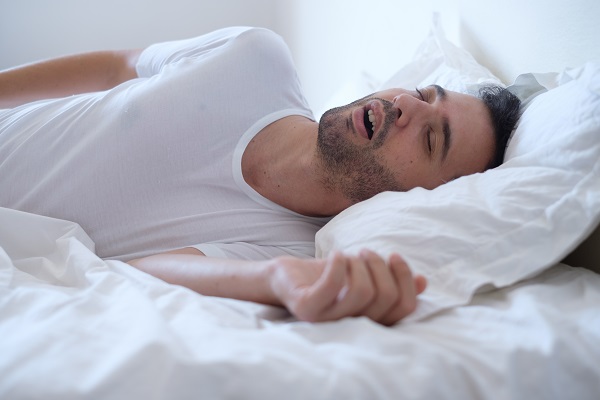A Family Dentist Discusses Oral Appliances for Sleep Apnea

Oral appliance therapy can provide crucial respite for patients living with sleep apnea. Sleep apnea is a condition that causes breathing to stop briefly during sleep and may cause unpleasant side effects. The general dentist can examine the patient and determine if they will benefit from getting an oral appliance to get a quality night's rest.
How oral appliances work
Oral appliance therapy for sleep apnea involvaes wearing a device in the mouth during sleep. Different types of oral appliances are available, and the dentist will recommend the best option depending on the patient’s condition. Most of the devices function by repositioning the jaw forward to keep the airway open. If the patient snores, which is often the case with those with obstructive sleep apnea, the device will make breathing more comfortable while sleeping.
Choosing the right oral appliance
The choice of oral device depends on the patient’s need and the origin of the sleep disorder. If the patient is ready to go through with the treatment, the family dentist will perform a comprehensive examination to decide the best oral device or any other solution for the problem. The dentist will examine the teeth, jaw and airway. Sometimes, X-rays may be required to get a better overview of the oral cavity.
If getting an oral appliance is deemed to be the most effective treatment option, the dentist will recommend getting a custom-fitted device. During the meeting, the dentist will go through the treatment plan and the benefits with the patient. Patients will also learn about the estimated cost and possible side effects of the treatment.
The device is approved by the FDA as a sleep apnea treatment. After fitting and adjusting the device, most patients will experience better sleep and snore less. Most devices are also covered by health insurance.
What to expect during the fitting process
The dentist will take impressions of the oral cavity to make a physical model of the bite. This will ensure accurate and comfortable fitting. The model will be forwarded to the dental lab, where the technicians will create an oral appliance that matches the exact specifications of the dentist.
At a second appointment, the patient will be fitted with the new appliance, and the fit will be examined in case further adjustments are necessary. The device needs to fit well inside the mouth to work. The patient will receive instructions on how to use and care for the new oral device properly.
The need for ongoing care
Ongoing care involves routine visits to the dental office to monitor the effectiveness of the treatment. The dentist needs to know if there is any problem with the comfort, fit and effectiveness. They will make any necessary adjustments. Multiple appointments may be required to get the perfect fit. However, once the appliance becomes functional and causes no discomfort during nightly usage, patients will only need yearly re-assessments.
In summary
After the general dentist fits and adjusts the oral appliance, you should notice significant positive changes in snoring and sleep apnea. With regular and correct use, the device should help you sleep better and improve your overall well-being.
Request an appointment here: https://somervilledentist.com or call Assembly Dental at (857) 300-5779 for an appointment in our Somerville office.
Check out what others are saying about our services on Yelp: Read our Yelp reviews.
Related Posts
A broken tooth can affect both oral health and confidence. Whether caused by biting into something hard, an accident, or underlying decay, prompt dental care is essential to prevent further damage and restore normal function. Fortunately, modern dentistry provides several reliable treatments that repair structural damage and rebuild a natural-looking smile. A cosmetic, family, or…
An implant dentist can help restore damaged tooth restorations by providing stable and long-lasting replacements. Implants can offer a reliable solution when a dental crown, bridge, or denture becomes loose, worn, or damaged. Implants support restorations by anchoring them securely to the jawbone, improving function and appearance. Understanding how an implant dentist can assist with…
Dental implants are a reliable way to replace missing teeth. They can improve how you eat and speak, as well as enhance the appearance of your smile. Choosing the right implant dentist ensures a successful treatment outcome. Here are five essential questions for an implant dentist during your initial consultation.Choosing the right dentist for implants…
Periodontics focuses on the health of the jawbone and gums. As part of a comprehensive dental care plan, general and family dentists often integrate periodontics into their services. This specialized field is concerned with preventing, diagnosing, and treating periodontal disease while also supporting tooth replacement and enhancing the smile. Understanding the basics of periodontics can…






